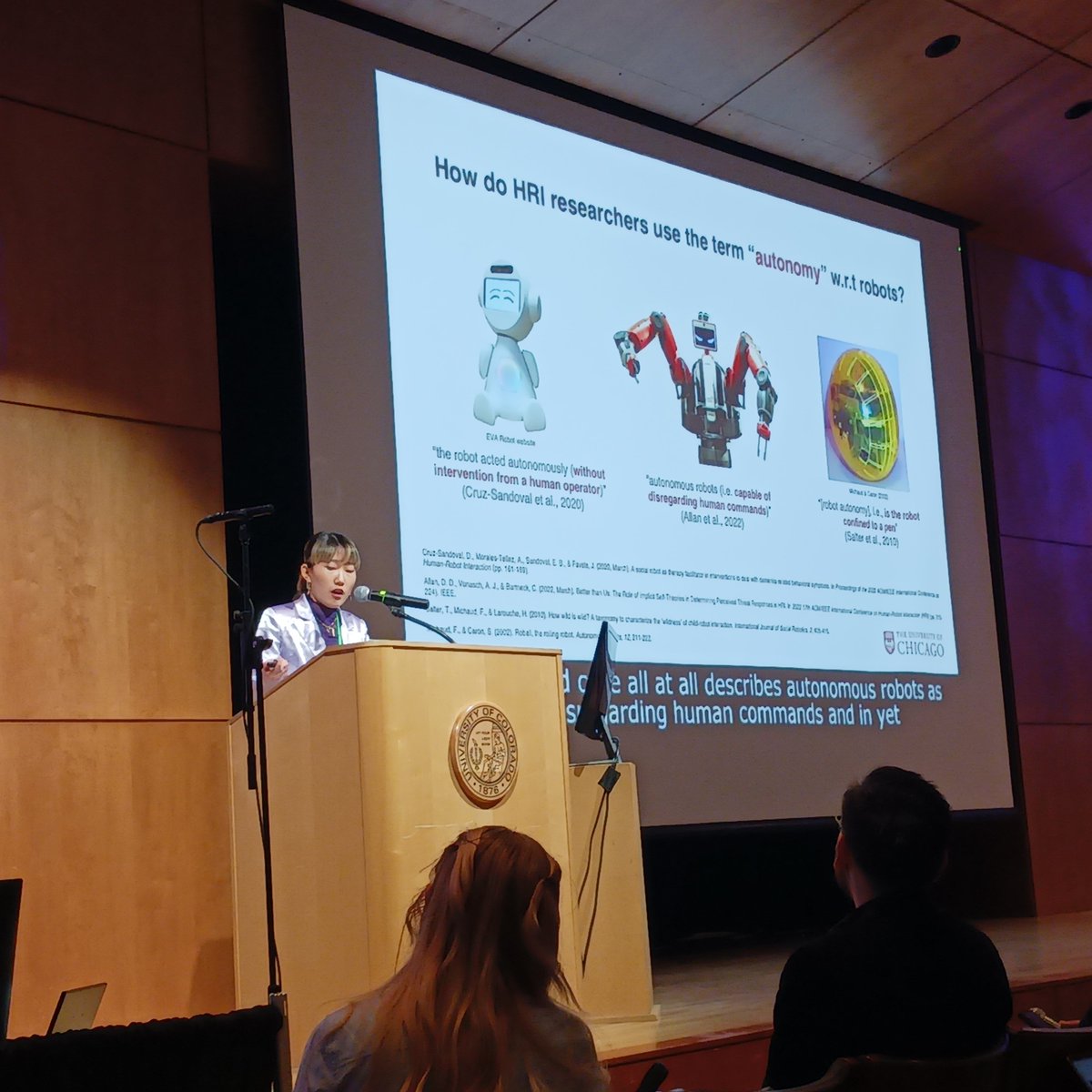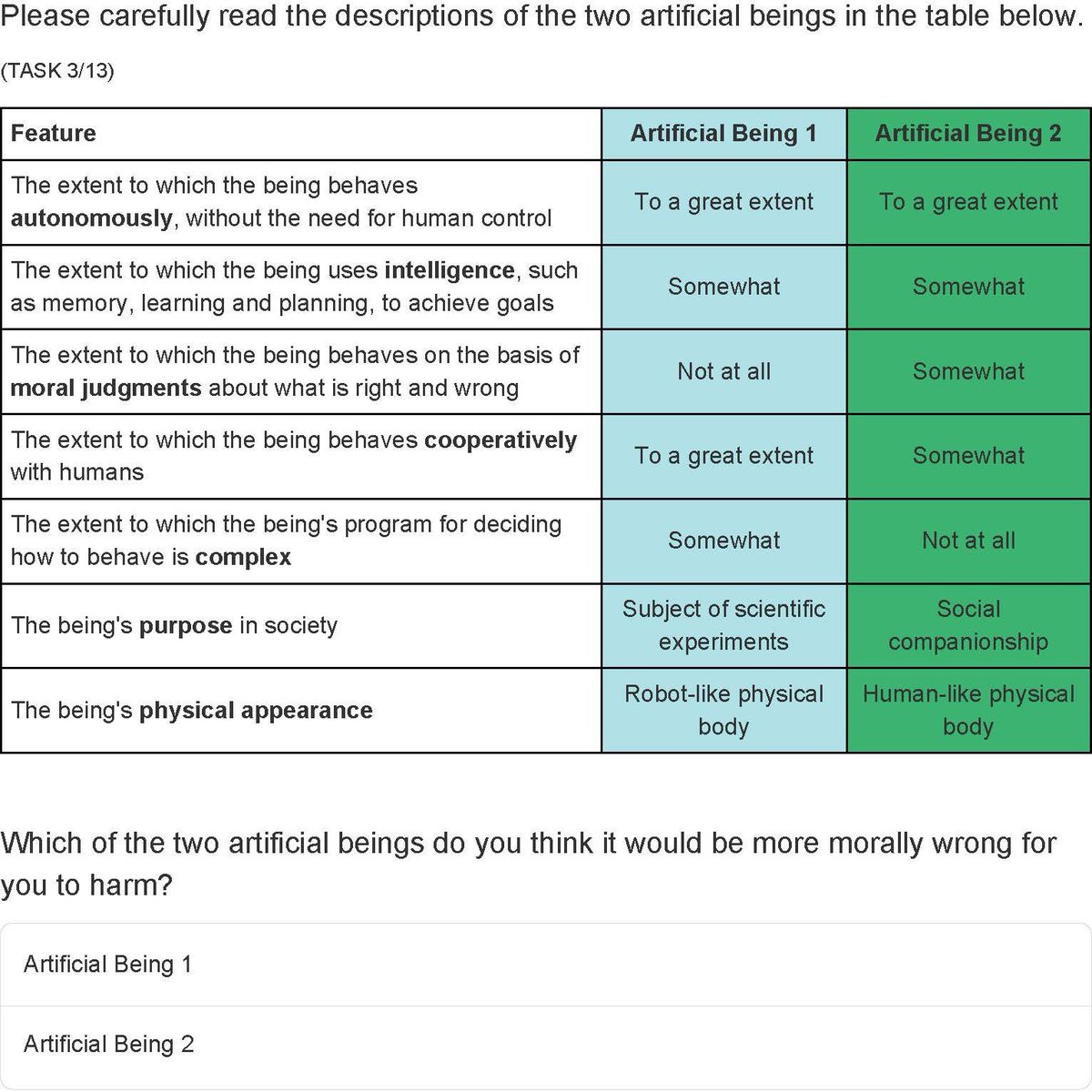
Sentience Institute
@sentienceinst
Sentience Institute is a nonprofit research organization studying the rise of digital minds and moral circle expansion.
ID: 829389479152668674
http://www.sentienceinstitute.org 08-02-2017 18:00:35
175 Tweet
3,3K Followers
257 Following



In our latest podcast, philosopher Raphaël Millière (Raphaël Millière) discusses fundamental questions about the technical and cognitive capacities of large language models. sentienceinstitute.org/podcast/episod…



In our latest podcast, philosopher Eric Schwitzgebel (Eric Schwitzgebel) discusses some of his recent papers on the moral status and sentience of AI. sentienceinstitute.org/podcast/episod…




In collaboration with the HRI lab at The University of Chicago, our recent paper published in #HRI2024 provides a taxonomy of robot autonomy that replaces the current simple notion (i.e., more or less human involvement) with six forms that can have very different effects. sentienceinstitute.org/blog/a-taxonom…

Our new paper #CHI2024 compares 11 features of AIs in how they affect moral concern for the AI's welfare. We found people care most about AIs with physical bodies—so not just an LLM/ChatGPT—and prosocial behavior—we care about an AI who can care about us! sentienceinstitute.org/blog/which-ais…



"Average responses to six forecasts (exploiting #AI labour, treating #AI cruelly, using #AI research subjects, #AI welfare, #AI rights advocacy, #AI unhappiness reduction) showed mixed expectations for humanity's future with #AI." Sentience Institute bpspsychub.onlinelibrary.wiley.com/doi/10.1111/bj…

Our new paper in the British Journal of Social Psychology describes what people expect in a future with "widespread AI sentience." The average U.S. adult thinks AI welfare will be an important social issue and sentient AI will be exploited for their labor. sentienceinstitute.org/blog/world-mak…








